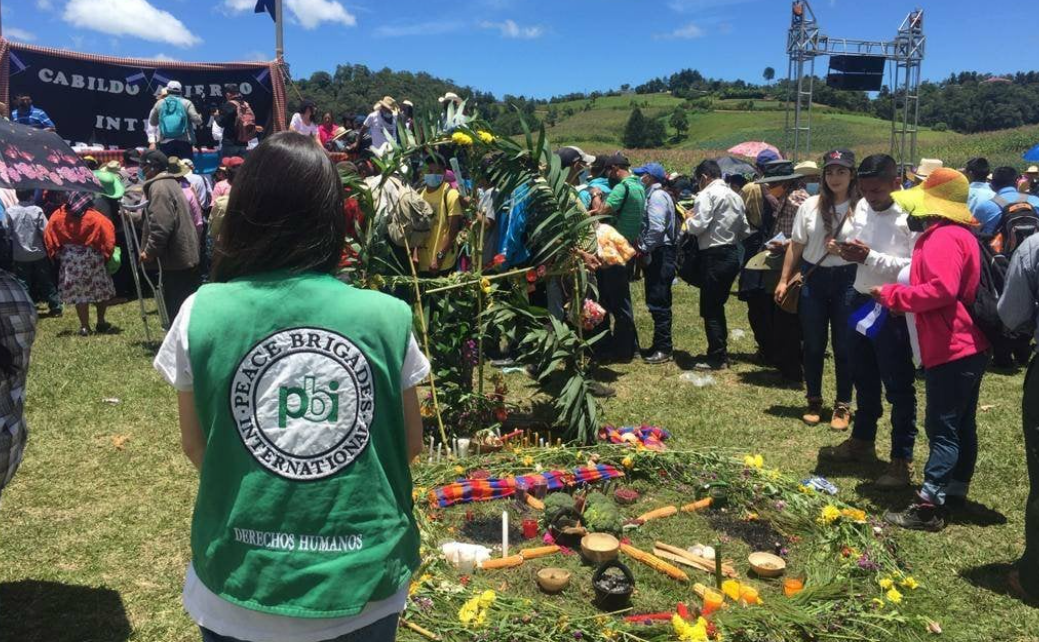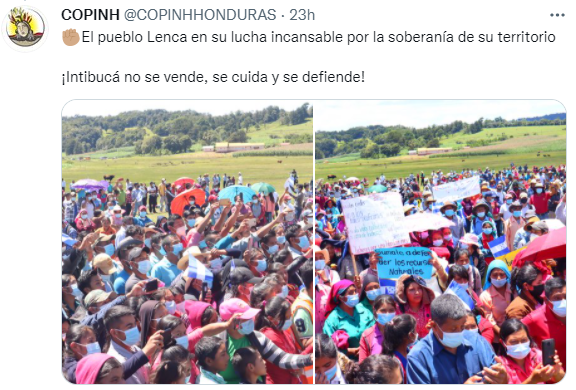
On September 2, the Peace Brigades International-Honduras Project posted: “PBI accompanies town hall meeting where the municipality of Intibucá said no to ZEDEs. In this way, it becomes the first municipality in the department to declare its territory free from the Special Development and Employment Zones.”
COPINH on ZEDEs
Criterio.hn also reports: “The Civic Council of Popular and Indigenous Organizations in Honduras (COPINH) celebrated the citizen action that involved the struggle of the Lenca people in Azacualpa, Intibucá, and through which it became the first municipality in the department to declare its territory free of ZEDE.”
That article adds: “The coordinator of COPINH, Bertha Zúniga Cáceres expressed through this social network that ‘Today we won dignity and sovereignty!’ by giving a ‘resounding no to the PROJECT of the ZEDE’.”
The PBI-Honduras post also quotes COPINH saying: “We believe in our land, we believe in our cultivation, we believe in our indigenous people! Always up in the fight in search of the liberation of the ancestral territories as our companera Berta Cáceres taught us.”
More about ZEDEs
In their September newsletter, PBI-Honduras explains:
“The implementation of Zones of Employment and Economic Development (Zonas de Empleo y Desarrollo Económico – ZEDEs), an idea that emerged in force in the context of the 2009 Coup d’État, is currently being defended by the Honduran Government as a form of economic development and a center for the creation of numerous jobs. Civil society organizations warn, however, that the establishment of ZEDEs could lead to serious human rights impacts.
The main impact these groups fear is the cession of national sovereignty, creating a favorable environment for corruption. The National Centre of Field Workers (Central Nacional de Trabajadores del Campo – CNTC) warns that the ZEDEs plan entails the privatization and sale of the national territory and common and natural goods to foreign capital, which will hold complete autonomy in the administration of public services and the criminal justice system. They also refer to their social impacts (such as forced displacement and increased conflict), environmental impacts (such as deforestation and pollution), and economic impacts (such as increased poverty and the loss of livelihoods).
‘Honduras will not be Zede-d’ has been the main response of Honduran society in the face of the implementation of ZEDEs in different areas throughout the country. Civil society describes the initiative as part of a continuum of extractivist policies that have led to the plunder of the country in past decades, including mining and banana enclaves.
PBI has been observing and accompanying actions in opposition to this initiative, which have been led by the National Movement Against ZEDEs and for Sovereignty, including protests, marches, consultations, and town hall meetings. By 6 June, over 180 municipalities declared themselves free of ZEDEs. This number has continued to grow. Although these actions have been held throughout the country, the majority of such declarations were made in the north of the country, in the Atlantic coast corridor.
The banding together of civil society organizations and their discontent in the face of the ZEDEs could become a mobilizing element in the November elections.”
For more from PBI-Honduras on this, please see “Honduras will not be Zede-d”.
France 24 also reports on this in their article Hondureños protestan contra “ciudades soberanas”, zonas extraterritoriales de inversion.
#HondurasNoSeZEDE


